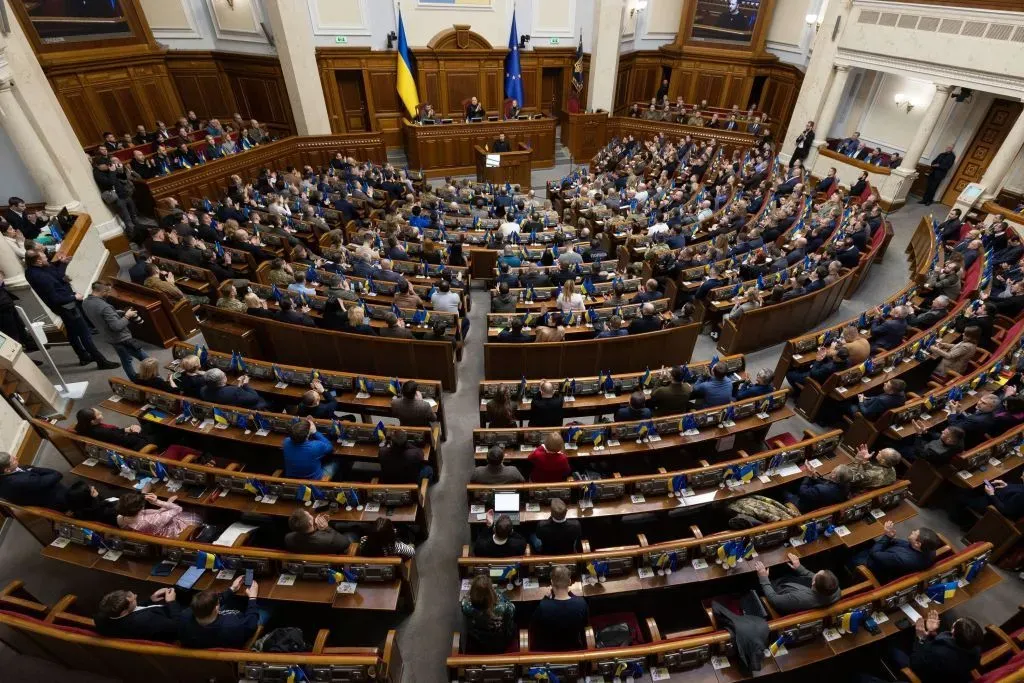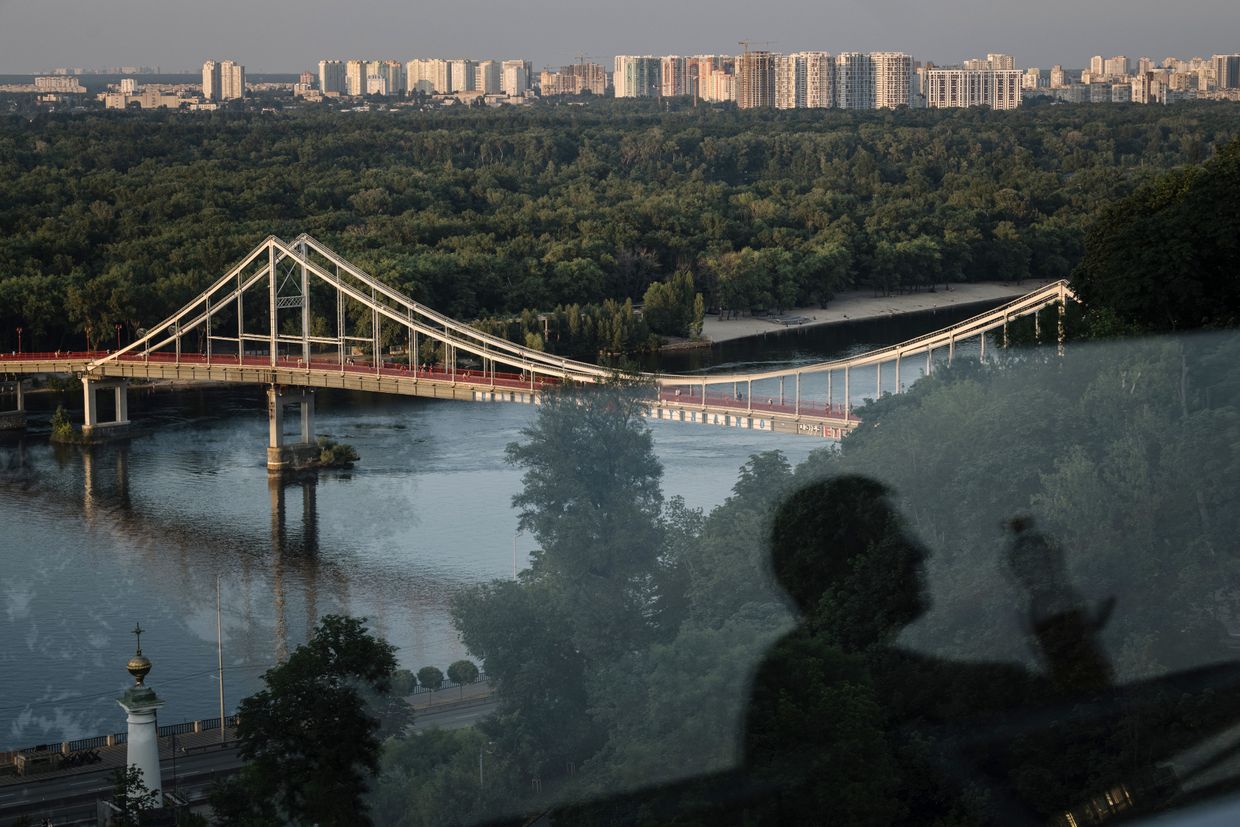MP Yaroslav Zhelezniak: Developments in Ukraine’s parliament on economic reforms, international obligations — Issue 73
Editor's note: This is issue 73 of Ukrainian lawmaker Yaroslav Zhelezniak's weekly "Ukrainian Economy in Brief" newsletter, covering events from Sept.
9- Sept.
15, 2024. The digest highlights steps taken in the Ukrainian parliament related to business, economics, and international financial programs. The Kyiv Independent is republishing with permission.
Benchmarks and soft commitments in the memorandum with the IMF
The Verkhovna Rada, Ukraine's Parliament, adopted in the final reading draft law #6490-d on restarting the State Customs Service.
The text of the draft law #6490-d for the second reading was designed and agreed with all key stakeholders including business associations, NGOs and international experts. The draft law incorporates all provisions on which international partners have insisted and meets all the requirements within the relevant benchmarks of the IMF, the World Bank and the EU (Ukraine Facility). The draft law introduces the transparent competitive procedure for the selection of the SCS head.
The competition commission which will select candidates for the SCS head consists of three representatives delegated by the Finance Ministry and three international representatives. International representatives in the competition commission don't have a decisive vote and work under parity principles with Ukrainian members of the commission. The competition commission for selection of the new SCS head doesn't determine the winner, but submits two candidates for consideration to the Finance Ministry.
The finance minister makes the final decision regarding the winner of the competition and submits only one candidate to be appointed by the Cabinet of Ministers. Moreover, among other key provisions of the draft law are:
- Re-attestation of management within 18 months from the appointment of the new head of the SCS and of other employees within three years;
- Ukrainian business associations submit half of the candidacies to the re-attestation commissions for the management positions of the customs service;
- establishment of a disciplinary committee with participation of the business community representatives;
- integrity checks and monitoring of the lifestyle of customs officials;
- securing independence of the head of the SCS during audits;
- an opportunity to increase wages for custom servicemen to a decent level.
The next steps before the draft law comes into effect are signing by the Chair of the Verkhovna Rada and the president of Ukraine. The Tax Committee recommended for the first reading the draft law on increasing taxes.
Today the Tax Committee reconsidered draft law #11416-d on tax increase after its rejection in the parliament. The difference in the revised version is just in the provision which raises the bank profit tax rate up to 50%. This provision was previously opposed by the Finance Ministry and the National Bank of Ukraine.
The Verkhovna Rada will consider draft law #11416-d in the first reading during the plenary meetings scheduled for Sept.
17-18.
Ukraine's parliament backs major tax hike in first reading Ukraine's parliament approved on Sept.
17 a bill that proposes a tax increase of Hr 58 billion (£1.4 billion) in 2024 and Hr 137 billion (£3.3 billion) in 2025.

The Budget Committee recommended a draft law with amendments to the State Budget 2024 for the second reading. Last week the Budget Committee recommended for the final reading the draft law #11417 on increasing defense spending by Hr 500 billion (£12 billion).
In fact, a reduction of different budget programs by Hr 628 million (£15 million) was added to the second reading. Overall the draft law suggests a reduction of budget expenses by Hr 137 billion (£3.3 billion). In particular, Hr 115 billion (£2.8 billion) are savings from the state debt service and Hr 22 billion of other expenses.
The Verkhovna Rada will consider draft law #11417 in the final reading during the plenary meetings scheduled for Sept.
17-18. The Parliament will adopt a draft law to restore medium-term local budgets. During plenary meetings scheduled for Sept.
17-18, the Verkhovna Rada will consider in the second readings draft law #11131 with the amendments to the Budget Code to restore medium-term planning of local budgets. This step is among Ukraine's intentions fixed in the Memorandum with the IMF. As we reported in Issue 63, the draft law restores medium-term planning of local budgets except for temporarily occupied territories or war zones, expands opportunities to use remaining funds, gives right for local councils to provide a financial guarantee for refinancing previously taken loans upon agreement with the Finance Ministry, allows local authorities not to apply the provisions of the Budget Code regarding the total volume of local debt for another six years until 2030.
Ukraine, IMF reach preliminary deal to give Kyiv access to around £1.1 billion
The IMF team led by Gavin Gray held week-long negotiations with the Ukrainian authorities in Kyiv on the fifth review of the country's 4-year Extended Fund Facility (EFF) program. The EFF is a four-year funding agreement that will allow Ukraine to access £15.6 billion in financial aid in regular ins...

The Verkhovna Rada is going to adopt in the first reading a draft law to reform the Accounting Chamber. This week the Parliament will vote on the first reading of draft law #10044-d on the reform of the Accounting Chamber.
The draft law suggests establishing a transparent competitive selection of the ACU's members with participation and the decisive vote of international experts, extending the mandate of the Accounting Chamber to all public finances, strengthening its independence, reducing a number of the ACU's members from 13 to 11, introducing an external audit with experts with international auditing experience.
World Bank priorities
This week the Parliament will consider several draft laws from the World Bank requirements. During the parliamentary meetings scheduled for Sept, 17-18, the Verkhovna Rada will consider five draft laws which are required by the World Bank. The Parliament will vote on the final reading of the draft law #5819 on regulating rating agencies and #11474 to address the issue of privatization of the state banks.
The Tax Committee recommended it for the second reading during its meeting on Monday. Moreover, the Verkhovna Rada will consider in the final reading draft law #11063-d on the State Agrarian Register and #10143 with the amendments to the Bankruptcy Code which are also obligations to the EU under the Ukraine Plan of Ukraine Facility. Furthermore, the Verkhovna Rada will consider in the first reading the new draft law #11520 on public procurements.
Other key economic issues
The Cabinet of Ministers submitted to the parliament the draft law on the State Budget 2025.
On Sept.
14, in line with the deadline required by the law, the Cabinet of Ministers submitted to the Verkhovna Rada draft law #12000 on the State Budget 2025. The draft law will be presented in the Parliament during the meetings scheduled for Sept.
17-18. The government expects Ukraine's GDP to grow by 2.7% (in 2024 it is expected to grow by 3.5%).
Inflation at the end of next year is expected to be 9.5% (in contrast with 7.9% this year). The average annual exchange rate in 2025 is expected to be Hr 45 for 1 US dollar. The government left the main social indicators in the budget unchanged: minimum wage at the level of Hr 8,000 (£192) and general subsistence minimum of Hr 2,920 (£70).
Budget revenues amount to Hr 2.336 trillion (£56 billion). They are expected to increase by Hr 192 billion (£4.6 billion) or by 9% compared to the 2024 plan. Most of this increase will be provided by revenues from direct taxes by Hr 179.8 billion (£4.3 billion).
In particular, personal income taxes should increase by Hr 158 billion (£3.8 billion) and income tax by Hr 21.8 billion (£525 billion). The state budget deficit in 2025 is expected to be 19.4% of GDP or Hr 1.546 trillion (£37 billion). The government is planning to finance it mainly from external sources.
Opinion: State predation threatens to derail Ukraine's war effort
Russia's full-scale invasion of Ukraine in February 2022 has led to a resurgence in state predation against businesses, now approaching pre-EuroMaidan levels.
This issue cannot be postponed until after the war.
Politicized, predatory actions by law enforcement agencies against both domestic and fore...
